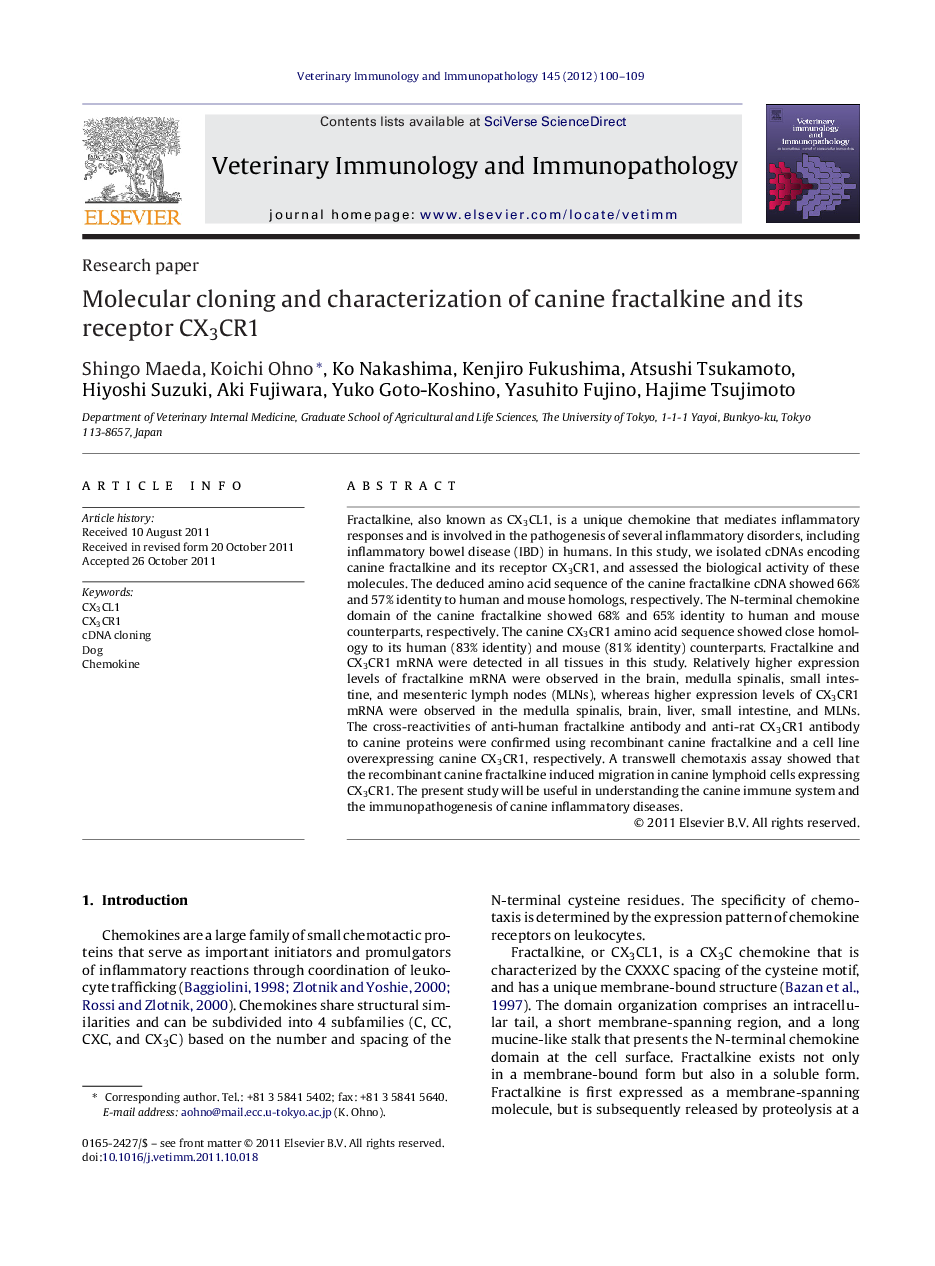| Article ID | Journal | Published Year | Pages | File Type |
|---|---|---|---|---|
| 2461907 | Veterinary Immunology and Immunopathology | 2012 | 10 Pages |
Fractalkine, also known as CX3CL1, is a unique chemokine that mediates inflammatory responses and is involved in the pathogenesis of several inflammatory disorders, including inflammatory bowel disease (IBD) in humans. In this study, we isolated cDNAs encoding canine fractalkine and its receptor CX3CR1, and assessed the biological activity of these molecules. The deduced amino acid sequence of the canine fractalkine cDNA showed 66% and 57% identity to human and mouse homologs, respectively. The N-terminal chemokine domain of the canine fractalkine showed 68% and 65% identity to human and mouse counterparts, respectively. The canine CX3CR1 amino acid sequence showed close homology to its human (83% identity) and mouse (81% identity) counterparts. Fractalkine and CX3CR1 mRNA were detected in all tissues in this study. Relatively higher expression levels of fractalkine mRNA were observed in the brain, medulla spinalis, small intestine, and mesenteric lymph nodes (MLNs), whereas higher expression levels of CX3CR1 mRNA were observed in the medulla spinalis, brain, liver, small intestine, and MLNs. The cross-reactivities of anti-human fractalkine antibody and anti-rat CX3CR1 antibody to canine proteins were confirmed using recombinant canine fractalkine and a cell line overexpressing canine CX3CR1, respectively. A transwell chemotaxis assay showed that the recombinant canine fractalkine induced migration in canine lymphoid cells expressing CX3CR1. The present study will be useful in understanding the canine immune system and the immunopathogenesis of canine inflammatory diseases.
